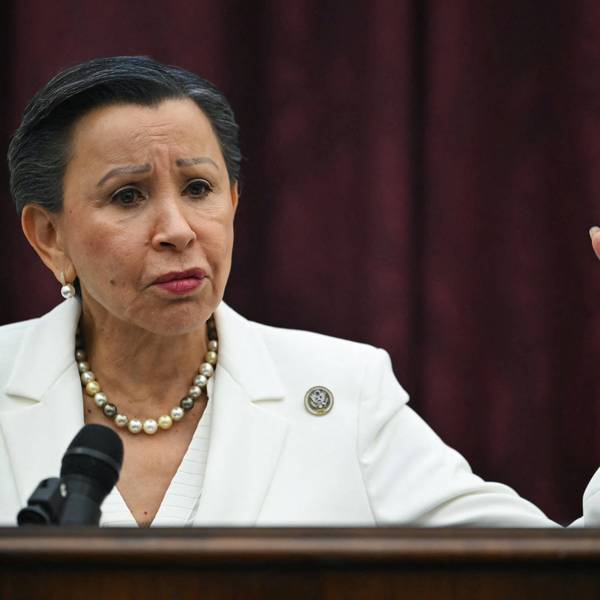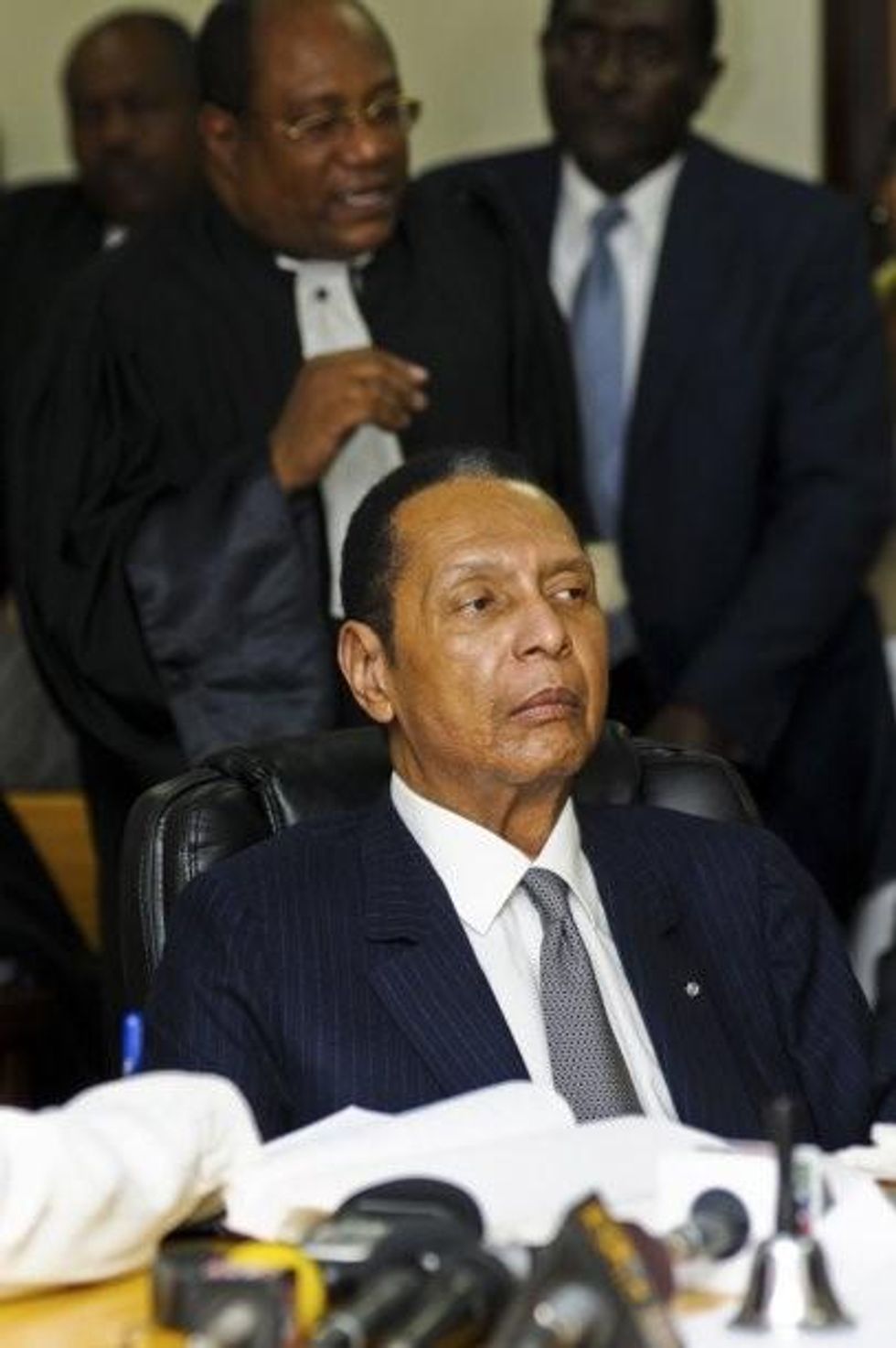PORT-AU-PRINCE, Haiti - I am in the courtroom for a hearing on the cases charging that Jean-Claude Duvalier committed massive human rights violations during his tenure as Haiti's president from 1971 to 1986. The courtroom is mobbed--black-robed lawyers, TV cameramen shining lights straight onto the panel of judges, and viktims of Duvalier's murderous regime all jostle for space. It is a big day. After ignoring multiple orders to appear in court, the former President-for-Life has finally shown up to answer questions.
Body heat and a distinct lack of ventilation have made the courtroom a virtual sauna. One Haitian journalist emerges from the scrum after an hour, soaking wet and shaking his head. "It is hell in there," he says in Creole.
"Duvalier is in there," someone replies. "What did you expect? Paradise?"
But even with this overflow crowd, several important people are missing. Namely, where is Michael Posner?
My guess is that he wants to be here. Posner did important Haiti human rightswork as far back as the 1980's for the Lawyers Committee for Human Rights, now Human Rights First. Harold Koh probably would like to be in this courtroom, too. He had a bookwritten about his groundbreaking legal advocacy for the rights of Haitian refugees. I scan the crowd unsuccessfully looking for Stephen Rapp, who made his career prosecutingbrutal leaders like Duvalier.
Posner is now the Assistant U.S. Secretary of State for Democracy Human Rights, and Labor. Koh recently completed a tenure as Legal Adviser for the U.S. State Department. Rapp heads the State Department's Office of Global Criminal Justice. These titles and their impressive resumes suggest they should be on the front lines pushing for Duvalier prosecution. It is a human rights Dream Team, all together working for the United States now. But they are sitting this one out.
Instead, the U.S. is represented today by just one embassy official, who does not participate in the hearing and does not want to speak for the record. Duvalier's presence is encouraging, too, even though he took the occasion to claim the government officials who killed and oppressed in his name "had their own authority" separate from his own.
But let's not get carried away. In virtually any other country in the world, someone like Duvalier would have been behind bars long ago. Instead, he hobnobs with the country's presidentand world leaders--Bill Clinton shook his handat an official event a few months ago--and dines in exclusive restaurants. President Michel Martelly's government recently renewed Duvalier's diplomatic passport. A lower court has thrown out the human rights allegationsagainst him, ruling that only corruption charges can go forward. Today, on behalf of the thousands of Haitians who were tortured, imprisoned, and killed for the crime of daring to oppose Duvalier's political dominance, Haiti's leading human rights attorney, Mario Joseph of the Bureau des Avocats Internationaux, argues that the charges should be reinstated.
The international human rights community is squarely on the side of Joseph and the Duvalier victims. Human Rights Watch and Amnesty International insistthat prosecution of Duvalier is absolutely necessary to reverse Haiti's legacy of impunity for the powerful. The Inter-American Commission on Human Rights points out that Duvalier's procedural argument, that the statute of limitations has expired for his crimes against humanity, is refuted by well-settled international law. UN High Commissioner for Human Rights Navi Pillay saysthe Haitian courts need to ensure the Duvalier victims "are provided with the long overdue justice they deserve."
But Michael Posner's voice is not heard. Nor is the government he represents.
I don't know why. I do know that the official explanation does not ring true. Former Secretary of State Hillary Clinton saidthe U.S. would leave the Duvalier prosecution decision to the government and people of Haiti. This laissez-faire approach to Haitian affairs is not consistent with the reality of the U.S. role here, from full military occupation in the early 20th century to the millions of dollars in economic and military support for a series of violent dictators that followed. As recently as 2011, Secretary of State Clinton successfully pushed the Haitian governmentto include current president Martelly as a candidate in the run-off election that led to his victory.
Nor does this hands-off approach align with recent U.S. full-throated advocacy for prosecution of human rights criminals like Saddam Hussein and Slobodan Milosevic, among many others. Perhaps the U.S. reluctance to push for a Duvalier prosecution is truly motivated by a desire for Haitian "stability," as the Secretary Clinton claimed. Or maybe the Obama administration hopes to conceal embarrassing details of the long U.S. support for Duvalier's murderous regime, or simply wants to support the friendly regime of Martelly, who has suggested amnestyfor Duvalier.
Whatever the reason for its absence, the U.S. voice for human rights and the rule of law is desperately needed in this courtroom. More so, it is needed in the offices of the Haitian government leaders who likely have more influence over the outcome than the judges presiding over this hearing. As Mario Joseph says, "A Duvalier process and trial would mean so much for Haiti. It will help people believe in the system of justice if they see a defendant held accountable who stole our country's money and killed and imprisoned people." The U.S. has enormous influence here, and most observers feel Duvalier will be held accountable for his crimes only if the U.S. speaks up.
So, please do it, President Obama and Secretary of State Kerry. Free Michael Posner.




